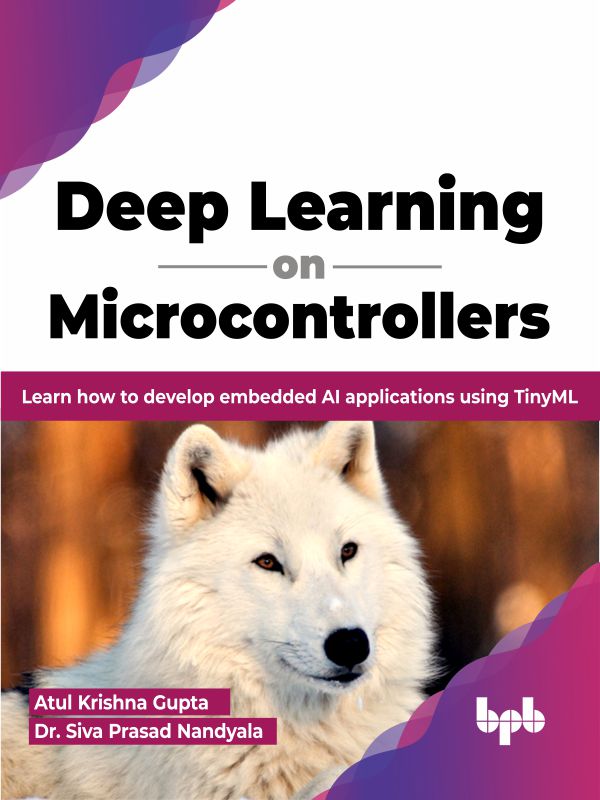
Deep Learning on Microcontrollers
FREE PREVIEW
ISBN: 9789355518057
eISBN: 9789355518002
Authors: Atul Krishna Gupta, Dr. Siva Prasad Nandyala
Rights: Worldwide
Publishing Date: 15th April 2023
Pages: 300
Dimension: 7.5*9.25 Inches
Book Type: Paperback
ISBN: 9789355518057
eISBN: 9789355518002
Authors: Atul Krishna Gupta, Dr. Siva Prasad Nandyala
Rights: Worldwide
Publishing Date: 15th April 2023
Pages: 300
Dimension: 7.5*9.25 Inches
Book Type: Paperback
DESCRIPTION
TABLE OF CONTENTS
ABOUT THE AUTHORS
Choose options

Deep Learning on Microcontrollers
Sale priceRs. 999

